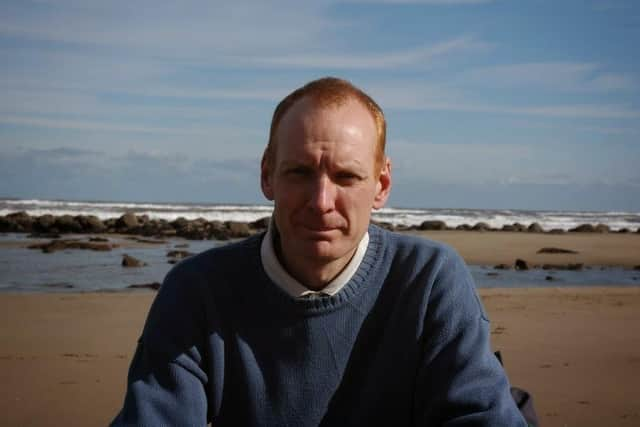Calls for urgent action over Tinnitus support as former Yorkshire councillor speaks out over devastating impact
Nearly one in seven adults in the UK suffer from tinnitus, which can cause ringing in the ears and diminish many people's quality of life. Now, as groundbreaking research today reveals the debilitating impact, a former Yorkshire councillor has backed calls for greater support.
Mark Vesey, from Scarborough, said he has suffered since last summer when he attended a music concert in the Yorkshire spa town. Too many people are left without support, he warns today, as findings suggest the number waiting over a year for appointments has trebled in the wake of lockdowns.
Advertisement
Hide AdAdvertisement
Hide Ad"It is shocking, when you see one in seven people are suffering from tinnitus in the UK in some form," said Mr Vesey. "A third of these are from music or sound that was too loud. That could be preventable - if there were better legislation about volume in music venues and clubs.


"It shows there is a lack of support, and a lack of awareness. There is no cure," he added. "There is only learning to live with it."
Today's findings, from independent charity Tinnitus UK, show rising waiting times for secondary care appointments with one in six people now waiting more than a year.
The research comes following a survey of nearly 500 people, delving into their experience of the condition and the challenges they face.
Advertisement
Hide AdAdvertisement
Hide AdSome 80 per cent of respondents had a low mood or anxiety, with 70 per cent feeling hopeless or helpless. One in five had experienced thoughts of suicide or self-harm.
Tinnitus has also been linked to social isolation, with two-thirds of sufferers saying they avoid contact with friends, skip social activities, or face difficulties at work.
Referrals to secondary care are falling, the charity warned, while fewer than one in 20 were offered mental health support such as CBT.
The charity is calling for urgent action to set a standard model for care nationwide, to re-evaluate care services and to increase education for medical professionals.
Advertisement
Hide AdAdvertisement
Hide AdHead of services Maisie Carscadden said there has been a "noticeable" increase in people reaching out for support with mental health.
"Unfortunately, the necessary resources are often lacking," she said.
James Jackson, Reader in Psychology at Leeds Trinity University, said that while many people eventually adapt, it can be distressing.
"It is vital that people have access to timely interventions to ensure that the impact on their quality of life is minimised," he said.
Advertisement
Hide AdAdvertisement
Hide AdMr Vesey, who is campaigning for a change to the law, claims the noise levels at a music gig last summer left him with a persistent whistling in his ears. The venue insists all guidelines were followed but he argues there should be stricter measures, and enforced monitoring, and is calling for noise levels to be better publicised.
"The HSE has limits in place for workers," he said. "They don't apply to the general public, which is shocking really when the Government regulates our salt or sugar use."